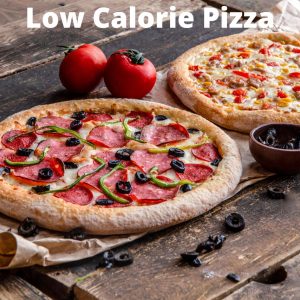Well, ‘how much protein a day’ depends on your ultimate goal. Whether you are an athlete who wants to maintain his/her lean muscle mass, looking for lean muscle gain, or looking to add strength, protein requirement per day depends on your goals when it comes to your body. There’s no one size fits all formula here.
Here, we will try to cover everything around protein needed per day with additional information one should know. Let’s begin with the basics.
Basics Of Protein
Most of your protein intake should come from natural sources like Eggs, Fish, Chicken, etc.
Since Whey Protein Shakes comprise mainly fast-acting proteins, they are best taken post your workout session and or during breakfast. Although consuming them during any other time will not do any harm either.
So typically, if you consume about 100-120 gms of protein through eggs and other natural sources like fish, then the remainder of 50 -70 gms should be substituted through your protein shakes, ideally, post your workout session.
So to sum up your question ‘how much protein do I need a day if I want to gain lean muscle,’ keep the protein calculation at 1.5 grams per pound of lean muscle weight for gaining lean muscle.
What Are The Healthy Sources Of Protein?
With how much protein per day, it’s equally important to go with the right food list.
Choosing protein-dense food options is not the only requirement. You must get your hands on the healthy options to take full advantage of what you chose to stuff your tummy with. These food choices can lower the risk of negative effects you might have to suffer because of a high-protein diet. Some of the healthy options are:
- Nuts
- Legumes
- Organic dairy
- Whole grains
- Eggs (from pastured hens)
- Wild fish
- Cheese
- Green yogurt
- Lean meats
- Almonds
- Peanut butter
You must avoid high-fat meats, dairy products, fried, and processed sources of protein at all costs.
Protein Intake Per Day
How much protein should you eat a day? Around 10-15% of your total calories in a day must come from protein. Example: If you need 2,000 calories per day as per your goals or in general, approximately 200-700 should be coming from protein.
To prevent deficiency in an average adult, 0.8 grams per kg is the recommended dietary allowance. For example, a person whose weight is 75 kgs, 60 grams of protein is highly recommended in a day. In case of any medical history or other illnesses, consult a health expert.
As you cross the age of 40-50, you start to lose your muscle mass that’s unavoidable. However, you can prevent this by increasing your protein intake to around 1.2 grams per kg or 70-90 grams per day if you weigh around 75kgs.
If you are a fitness enthusiast & you hit the gym regularly, your protein needs are higher. You must consume 1.1 to 1.5 grams of protein per kg. If you are more into weight lifting, running, or cycling, your protein needs are 1.2 to 1.7 gms/kg.
Consuming 2 grams of protein per kg of body weight is counted as excessive protein consumption.
If you are obese or overweight, consult a dietician for a customized plan for the best results. Your ideal daily protein intake will be included in your plan.
Report Source: Dietary Reference Intakes (DRI)
Best Time In The Day To Consume Protein For The Best Results
With how much protein should I eat in a day, you must also know the correct answer to WHEN?
The best plan is to consume protein evenly throughout the day in every meal. You get the most of your protein from what you eat during your evening meals and the least amount from what you plan to eat in your breakfast.
Some studies reveal that if you shift some amount of protein from your supper to your breakfast, it keeps your weight in check. How? Protein keeps you fuller and you munch less on unhealthy foods, therefore, fewer calories are consumed.
The health industry is waiting for more solid research on protein and its consumption. But as per the studies available, around 15-30 grams of protein is recommended daily at each meal.
A higher protein consumption of around 40 grams in a meal would do no good. Remember, anything excess is bad.
Why Is Protein Important In The Body? Its 9 Major Functions
Protein is very much needed by your body on a daily basis. In fact the word protein comes from a Greek word ‘proteos’ that means ‘first place.’
Proteins are a long chain of amino acids. It’s like a string of beads where each bead is an amino acid.
There are twenty amino acids that form hundreds and thousands of multiple proteins in the body. Most of the protein’s work is done in the cells.
Here are 9 major functions of protein in the body.
1. Maintenance & Growth
For tissues’ proper growth & maintenance, your body needs protein but in a constant state of turnover depending upon your health & activity. Why?
Your body breaks down the exact amount of protein that it uses to build & repair tissues under normal conditions.
It could be also a case that your body burns down more protein than it creates that increases the protein demand in your body. It could happen in the cases when you are ill, during pregnancy, etc.
2. Biochemical Reactions In The Body
Biochemical reactions that happen in or outside the cells are aided by enzymes that are proteins.
These enzyme’s structures are such that allows other molecules to combine with them inside the cell known as substrates, which catalyze reactions that are vital for your good metabolism.
These enzymes also work externally like digestive enzymes (lactase, sucrase) which aids in digesting sugar.
While some work independently, others might need vitamins or minerals to let reactions happen.
3. Serves As a Messenger
There are some proteins that are also hormones working as a chemical messenger to make communication possible between your body’s organs, cells & tissues.
Lack of protein in your body can hamper this chain of communication that’s vital.
4. Gives Structure
There are some fibrous proteins like keratin, elastin & collagen that provide stiffness & structure to cells and tissues along with strength.
5. Maintains pH
A constant pH is vital for the body. Even a slight pH change can be harmful. Protein comes to rescue for this body function as well. It has an important role to play when it comes to regulating the concentrations of body and other bodily fluids’ acids & bases.
The best example here is hemoglobin. It’s a protein that makes RBC (red blood cells).
6. Protein Maintains Fluid Balance
Proteins like albumin and globulin regulate processes in the body that result in fluid balance by attracting & retaining water. If you don’t consume enough protein, the level of albumin and globulin will decrease that will hamper the process, resulting in multiple illnesses.
7. Boosts Immunity
Proteins bolster the immune system by forming antibodies or immunoglobulins that protect the body from bacteria & viruses that can cause diseases.
8. Stores and Transports Nutrients
Proteins carry vitamins, minerals, blood sugar, oxygen & cholesterol into, within & outside the cells.
Example…
- Hemoglobin carries oxygen to body tissues from lungs.
- Glucose transporters carry glucose to cells.
- Lipoproteins carry cholesterol and fats in the blood.
Other than transporting, proteins have a storing function too like Ferritin stores iron.
9. Supply Energy To The Body
Protein can turn out to be a great source of energy in situations like fasting, heavy exercises & insufficient calorie intake.
Signs You Are Consuming Too Much Protein Than Required or Recommended
The answer to ‘how much protein do I need daily’ is not as much as you can because it’s good. Protein overconsumption can affect your body and hamper proper functioning. If you experience any of the symptoms mentioned below, watch and limit your protein intake.
1. Dehydration
Too much protein for a short span might not be negative for a majority of people, but continuing it for longer could leave one dehydrated. Why? Because too much protein intake makes your kidney work harder to get rid of the excess protein along with nitrogen through the protein. As a result, you pee frequently which leaves you dehydrated.
2. Overload On Liver
If not taken in the right amount, protein can burden your liver which can hamper its proper functioning.
3. Weight Gain
Myth debunked that a high protein diet results in weight loss. Well, there’s more to it.
Yes, a protein-rich diet aids in weight loss, but the results could be temporary if your protein intake is unnecessarily higher. When your body gets more protein than it can use, the excess protein is stored as fat.
4. Constipation
If you are high on protein, that means carbs and fiber intake is limited. Lack of fiber leads to digestive problems like constipation, nausea, diarrhea, bloating, cramping, etc.
5. Bad Breath
Looking for a solution for bad breath, try reducing protein intake. Why? As mentioned before, increasing protein intake means decreasing carbs intake which could lead to a shortage of carbs in the body. It forces the body to make energy from other sources which means chemical production leading to bad breath.
6. Kidney Damage
One major side effect of protein overconsumption is on the kidneys including failure, sleep trouble, poor appetite, muscle cramps, leg swelling, frequent urination, etc.
7. Heart Disease
A study revealed that higher protein consumption increases the risk of heart failure by 33%.
Signs You Are Consuming Less Protein Than Required
Your body functions seamlessly when it gets all the nutrients it needs in the right amount. Less or more, both could be harmful. Therefore, the symptoms should not go unattended. Here are signs to look for when you are low on proteins.
1. Problems Related To Skin, Hair & Nails
Skin, hair & nails are majorly made with proteins and they are the first ones to get affected when there’s protein deficiency in the body. Skin redness, brittle nails, hair fall, thin hair, etc., could be the signs you must be watchful of.
2. Muscle Mass Loss
It’s a known fact that muscles in the body are made of protein. Therefore, protein deficiency affects this area and you start to lose muscles. In fact, it’s the first sign of protein deficiency.
3. Fragile Bones
For bone health and strength, protein’s role is well known. Protein deficiency can weaken your bones while increasing its fracture risk.
4. Increased Appetite
If your protein intake is on point, it keeps you full for a longer period of time which helps you fight unnecessary munching and cravings. But, lesser protein consumption has the exact opposite effect. You end up eating more and increasing your calorie intake.
5. Infections
Lack of protein takes a toll on your immunity that gives space to infections.
6. Fatty Liver
Lesser protein consumption leads to fat accumulation in liver cells.
7. Hampers Body Growth
Protein is vital for overall body growth. Not loading up yourself with protein can be harmful in the long run, if not immediately.
We hope now you will make a wiser choice regarding how much protein a day? Be wiser with your choices and quantity. For daily health tips, amazing recipes & fitness articles, subscribe via Email, like us on Facebook, and follow us on Twitter.
Related Post






